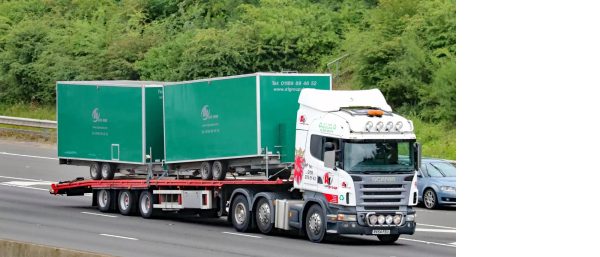Logistics UK, the largest business group in the sector is urging organisations to start preparing for the UK’s departure from the EU at the end of the year.
 Elizabeth de Jong, Director of Policy at Logistics UK explains: “Around 200,000 UK businesses currently trade with Europe, and it is imperative that they protect their supply chains as the UK completes its departure from the EU. While the government continues its negotiations with the EU with the aim of achieving a Free Trade Agreement, there is still much that UK traders can do now to ensure that the goods they depend upon continue to flow across our borders.”
Elizabeth de Jong, Director of Policy at Logistics UK explains: “Around 200,000 UK businesses currently trade with Europe, and it is imperative that they protect their supply chains as the UK completes its departure from the EU. While the government continues its negotiations with the EU with the aim of achieving a Free Trade Agreement, there is still much that UK traders can do now to ensure that the goods they depend upon continue to flow across our borders.”
“With less than 150 days left to the UK’s EU departure, the time to take action is now. Business must be ready to switch to new systems and new methods of trading from 1 January 2021 if their businesses are to be protected. There is still much for government to deliver, but a timely preparation by business will help to smooth the future passage of goods and services with our largest trading partner from the start of the New Year.”
As she explains, the preparations which business can make are not reliant upon a trade deal being reached – organisations will need to take many of the same steps to maintain the supply chain whatever the political outcome in Brussels and London.
“Logistics UK has advised its members to start preparing now. For example, all importers and export traders will need to ensure they have import and export paperwork and systems ready, whatever the outcome of the political negotiations. These include applying for a GB Economic Operator Registration and Identification (EORI) number which is needed before any goods can be moved, and knowing the Commodity Code and customs value of the goods, which are all needed to make a customs declaration and calculate duties.”
“In addition, hauliers will need to understand and be able to use at least eight new IT systems to make Roll-On Roll-Off trade move efficiently – there are four separate systems required by the UK government and one for each of Ireland, France, Belgium and the Netherlands. All will take time to install and learn and should not be left to the last minute.”
“And there are many other areas which, while seemingly innocuous, could trip up the very best intentions of traders to maintain a seamless supply chain. Businesses need to ask themselves have they considered how they will make declarations to HMRC systems, and whether they will employ an agent. It is also important to consider whether they can, and would benefit from, using any available simplifications or deferred customs declarations for standard goods. All this takes time and needs to be factored into the planning process – leaving it to the last minute could be problematic at best.”
“Help is available, with a wealth of information available at www.gov.uk and via business groups like Logistics UK through our Brexit hub (www.logistics.org.uk/campaigns/brexit), our free webinars for members and our Member Advice Centre. Logistics UK is here to help – don’t leave it to the last minute!”


